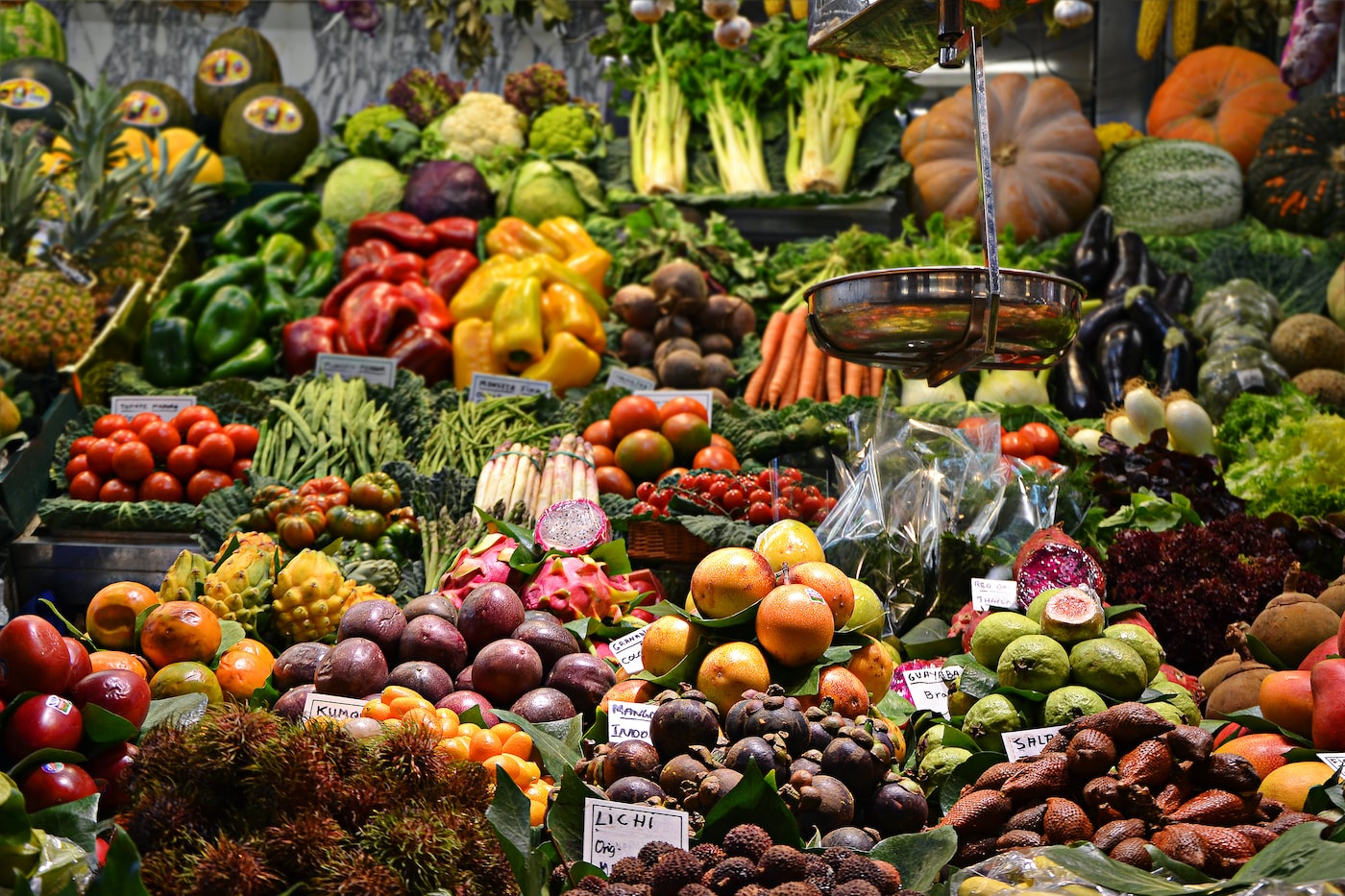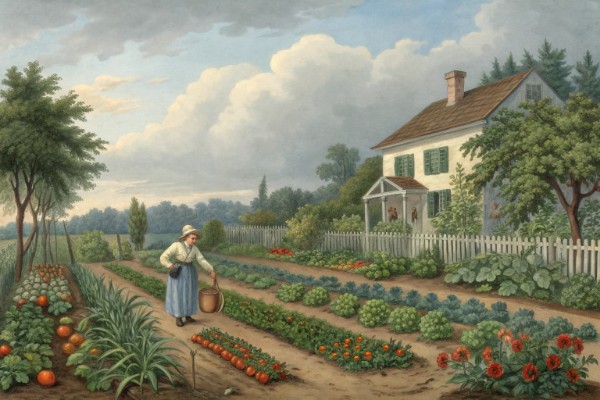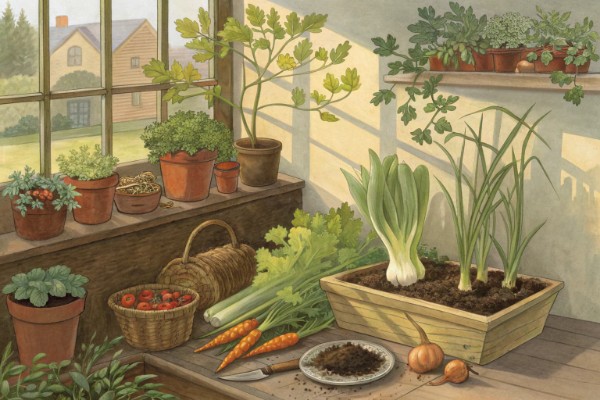Nutrient-Dense Vegetables: Your Essential Garden Companion

Nutrient-Dense Vegetables
Choosing nutrient-dense vegetables puts flavor and health squarely on your plate. Kale packs calcium and vitamin K to protect bones, spinach delivers iron to kick-start energy, and carrots load you up with beta-carotene for better eyesight. This guide serves up an easy-to-use roadmap of the top nutrient-dense vegetables, helping you grow better, cook smarter, and eat tastier—no culinary guilt, just flavorful rewards.
What Makes a Vegetable Nutrient-Dense Anyway?
I've spent countless hours knee-deep in garden beds, and let me tell you, nutrient density isn't some fancy gardening lingo. It's simply about growing vegetables packed with vitamins, minerals, antioxidants, and other goodies that fuel your body properly.
Years back, I noticed my peppers thrived after adding compost rich in minerals—lesson learned. Nutrient-rich soil equals nutrient-dense vegetables.
"On average, today's vegetables have up to 38% fewer nutrients compared to 50 years ago, due to declining soil quality, according to the U.S. Department of Agriculture."
Top 8 Nutrient-Dense Vegetables to Grow
From personal trials (and tasting sessions), I've identified some definite winners in the nutrient-density category. Here's what you should plant:
1. Kale
Kale holds the crown for nutrient density. Vitamin K, antioxidants, calcium—it brings heavyweight nutrition to any salad or smoothie.
- Growing tip: Plant kale in early spring or late summer; it prefers cooler climates between 55-75°F (13-24°C).
2. Spinach
You can't beat homegrown spinach. Packed with vitamins A, C, iron, and folate, spinach leaves deliver nutrients you actually feel.
- Growing tip: Aim for partial shade; spinach bolts quickly in high heat.
3. Broccoli
Broccoli dishes out vitamins C, K, fiber, and powerful anti-cancer compounds called sulforaphane. Plus, freshly picked broccoli tastes sweeter, less bitter than store-bought.
- Growing tip: Broccoli flourishes in temperatures between 60-70°F (15-21°C); plant early spring and fall.
4. Carrots
Carrots shine with beta-carotene, fiber, antioxidants, and potassium. You haven't truly tasted a carrot until you've plucked one from your own patch.
- Growing tip: Plant carrot seeds directly into loosened, rock-free soil for better root growth.
5. Garlic
Garlic is flavorful nutrition. Loaded with allicin (immune-boosting compounds) and manganese, garlic from your garden has a spicy bite store-bought cloves rarely match.
- Gardening note: Plant garlic cloves in autumn about 4-6 weeks before your first frost date.
6. Beets
Rich in folate, potassium, and nitrates beneficial for cardiovascular health, beets deliver vibrant color and earthy sweetness from garden to plate.
- Quick advice: Thin seedlings early to encourage bigger beet roots.
7. Swiss Chard
Swiss chard, the underrated superstar, offers vitamins A, K, and magnesium. Its bright stalks make gardening and cooking equally enjoyable.
- My growing trick: Harvest continually by snipping outer leaves, allowing new growth at the center.
8. Brussels Sprouts
Rich in antioxidants, fiber, vitamins K and C, homegrown Brussels sprouts roast beautifully, minus the bitter taste they sometimes get on grocery shelves.
- Pro tip: Harvest sprouts after frost—they turn sweeter.
Boosting Your Vegetable Garden's Nutrient Density
Growing nutrient-dense vegetables starts below ground. Healthy, mineral-rich soil ensures veggies absorb abundant nutrients.
Remember, I learned early that compost isn't optional—it's essential. I mix homemade compost regularly, along with occasional applications of rock dust or kelp meal for added trace minerals.
Crop rotation also helps keep nutrients balanced and diseases at bay. Don't make the mistake I made years ago planting tomatoes in the same spot repeatedly—trust me, yield and quality drop noticeably.
"Gardening isn't simply about plant care; it's about soil care. Nurture your soil, and nutrients find their own way into your vegetables."
Cooking to Maximize Nutrients
Finally, harvesting nutrient-dense veggies means nothing if overcooking destroys valuable nutrients. Light steaming, quick sautéing, or gentle roasting works beautifully.
Personally, I've grown fond of massaging raw kale leaves with lemon juice and olive oil—a delicious way to preserve nutrients and bring out the leaf's tender texture.
Bottom line: combine attentive soil management with smart planting and cooking, and nutrient-dense vegetables become your garden's delicious reward.
Cheatsheet: Grow Maximum Nutrition, Minimum Space
🌱 Pick Powerhouse Crops
- Kale: 3x more Vit C than spinach
- Spinach: rich in iron & folate
- Swiss chard: loaded with Vit K
- Broccoli: top calcium & fiber source
- Carrots: max beta-carotene
- Beets: boost antioxidants
- Bok choy: immune support
🗺️ Plant for Peak Nutrition
- Choose full sun: 6–8 hrs daily
- Plant after frost: 50°F+ (10°C+)
- Space tightly: No bare soil
- Crop-rotate each season
- Include legumes for nitrogen
🥕 Soil Strategies
- pH: 6.0–7.0 optimal
- Add 2–4 in (5–10 cm) compost yearly
- Mulch: retain moisture, block weeds
- Side-dress with seaweed or rock dust
- Test soil biannually
💧 Feed & Water Smarter
- Deep water: 1 in (2.5 cm) weekly
- Apply fish emulsion every 2 weeks
- Foliar spray (kelp tea) for quick uptake
- Avoid over-fertilizing
⏲️ Harvest Timing
- Pick young leaves: highest nutrients
- Morning harvest locks in vitamins
- Harvest often: stimulates growth
- Store in cool, dark place
🛠️ Tools & Products You’ll Need
- Compost & organic fertilizer
- pH soil test kit
- Hand trowel & pruners
- Mulch (straw, leaves)
- Watering can or drip hose
- Row cover for pests
- Test and amend soil to pH 6.0–7.0 with compost
- Sow seeds of nutrient-dense crops after last frost
- Mulch and water deeply once seedlings emerge
- Fertilize with organic options every 2–3 weeks
- Harvest early and frequently for best nutrition
🥗 Health & Nutrition
- Homegrown vegetables: up to 60% higher nutrients than store-bought (source: Journal of Agricultural Food Chemistry)
- Boost immunity & lower chronic disease risk
- Increase food security, lower grocery bills
Frequently Asked Questions About Nutrient-Dense Vegetables
Which vegetables contain the highest concentration of nutrients?
Dark leafy greens such as kale, spinach, and Swiss chard top the list of nutrient-dense vegetables. Root vegetables like beets, colorful choices like bell peppers, and cruciferous vegetables including broccoli and Brussels sprouts also deliver high nutritional value per serving.
Does cooking alter the nutrients found in vegetables?
Cooking methods can significantly influence nutrient retention. For instance, heat-sensitive vitamins like vitamin C diminish drastically at high temperatures. Quick cooking techniques such as steaming or sautéing briefly at moderate heat (approximately 300°F / 150°C for 3–5 minutes) protect nutrients best. Meanwhile, prolonged boiling often causes nutrient loss into cooking water.
How can gardeners maximize nutrients in vegetables grown at home?
Gardeners can boost vegetable nutrient levels by enriching soil health. Regular additions of organic compost, crop rotation practices, and minimizing synthetic chemicals maintain soil biodiversity and promote nutrient uptake in plants. Harvest vegetables at optimal ripeness, consuming shortly thereafter for peak nutritional content.
Do organic vegetables offer higher nutritional benefits compared to conventional produce?
Organic farming practices typically focus on soil quality and reduced chemical input, resulting in soils richer in beneficial microorganisms. Studies indicate organically grown vegetables often exhibit higher concentrations of certain nutrients, such as antioxidants and polyphenols. However, choosing fresh, locally sourced produce often delivers peak nutrient density, regardless of its organic status.
Can I improve the nutrient density of store-bought vegetables?
While nutrient content peaks upon harvest, proper storage helps preserve nutritional quality. Refrigerate vegetables quickly in breathable containers, wash them right before use rather than before storage, and consume within several days. Pairing vegetables with healthy fats, such as olive oil or avocado, boosts absorption of fat-soluble vitamins, enhancing nutritional benefits.
Are frozen vegetables as nutrient-rich as fresh ones?
Frozen vegetables typically undergo processing shortly after harvesting, locking in nutrients effectively. Though some water-soluble vitamins may decrease slightly during blanching, overall nutritional integrity remains comparable or higher than many fresh supermarket vegetables that spend extended periods in transit and storage.
Nutrient-dense vegetables aren’t just good for your body—they’re a reminder of what real food should taste like. Growing your own food garden means you control what goes into the soil and onto your plate. With a little patience, the right tools, and a willingness to get your hands dirty, you’ll see how these crops pack more than just flavor—they bring real sustenance. Choose varieties rich in vitamins, minerals, and color. Rotate crops, feed your soil, and harvest at peak ripeness for the best nutrition. If you’re new to this or want a refresher, gardening classes can sharpen your skills. In the end, nothing beats biting into a tomato or leafy green you’ve raised yourself. Nutrient-dense vegetables don’t just fill your plate—they nourish your life.
Find out which plants will thrive in your garden!
Answer a few fun questions and get custom plant recommendations perfect for your space. Let’s grow something amazing together!

start your season


